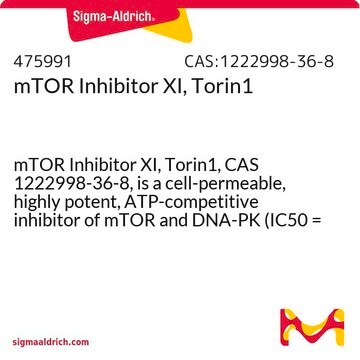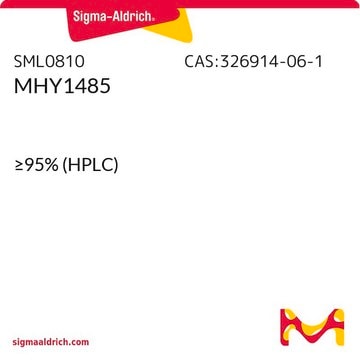SML0031
DBeQ
≥98% (HPLC)
Synonym(s):
JRF 12, N2,N4-dibenzylquinazoline-2,4-diamine
About This Item
Recommended Products
Quality Level
Assay
≥98% (HPLC)
form
powder
color
white to beige
solubility
DMSO: ≥20 mg/mL
storage temp.
room temp
SMILES string
C(Nc1nc(NCc2ccccc2)c3ccccc3n1)c4ccccc4
InChI
1S/C22H20N4/c1-3-9-17(10-4-1)15-23-21-19-13-7-8-14-20(19)25-22(26-21)24-16-18-11-5-2-6-12-18/h1-14H,15-16H2,(H2,23,24,25,26)
InChI key
QAIMUUJJAJBPCL-UHFFFAOYSA-N
Application
Biochem/physiol Actions
Storage Class Code
11 - Combustible Solids
WGK
WGK 3
Certificates of Analysis (COA)
Search for Certificates of Analysis (COA) by entering the products Lot/Batch Number. Lot and Batch Numbers can be found on a product’s label following the words ‘Lot’ or ‘Batch’.
Already Own This Product?
Find documentation for the products that you have recently purchased in the Document Library.
Customers Also Viewed
Articles
We presents an article on Autophagy in Cancer Promotes Therapeutic Resistance
Our team of scientists has experience in all areas of research including Life Science, Material Science, Chemical Synthesis, Chromatography, Analytical and many others.
Contact Technical Service











